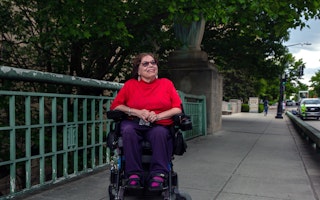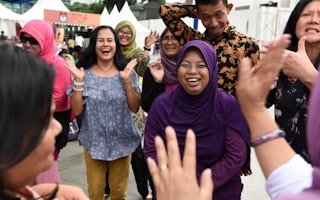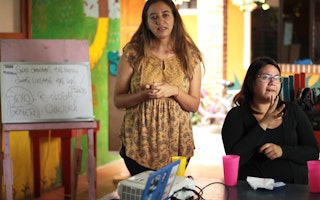Zambia Is Pioneering a New Approach to Criminal Justice for People with Disabilities
By Louise Ehlers

Ten years ago, the United Nations General Assembly adopted the Convention on the Rights of Persons with Disabilities, a landmark international treaty in the pantheon of human rights. On paper, Article 13 of the convention guarantees equal and effective access to justice, and Article 14 prohibits deprivation of liberty based on disability. But in reality, the most marginalized people with disabilities—those with intellectual and psychosocial disabilities—rarely get equal access to justice.
Instead, they are discriminated against at almost every turn, whether by police, lawyers, judges, or prison staff, most of whom lack the training to engage with or accommodate persons with such disabilities. As a result, people with intellectual and psychosocial disabilities are at higher risk of getting caught in discriminatory justice systems in which they are treated differently than others—discriminated against, stigmatized, even ignored. Once in the system, some are simply forgotten and never get out.
In Zambia, people with psychosocial and intellectual disabilities are at a heightened risk of being wrongly arrested and detained for noncriminal behavior. If they misunderstand police questioning or are misunderstood by police, unintended consequences may result, from inaccurate testimony to unnecessary punishment and confinement. The absence of community-based support services only compounds these issues.
But things are changing for the better.
In the video above, we discover how Zambia is breaking new ground by reforming the way in which its criminal justice system treats people with disabilities. A consortium of nongovernmental organizations, led by the Lusaka-based Paralegal Alliance Network, has been collaborating with the Zambian government in an innovative partnership that includes the Ministry of Home Affairs, the Mental Health Users Network Zambia, the Prisons Care and Counselling Association, the Zambia Federation of Disability Organisations, the Legal Resources Foundation, and the UK-based Prison Reform Trust.
Their research, report, and recommendations, supported by the Open Society Human Rights Initiative and the Open Society Initiative for Southern Africa, are pushing the country to fundamentally alter the disability rights landscape in Zambia for the better, improving policy and practice not only for people with psychosocial and intellectual disabilities, but for all people coming into contact with the justice system.
Louise Ehlers is a program manager with the Open Society Human Rights Initiative.


